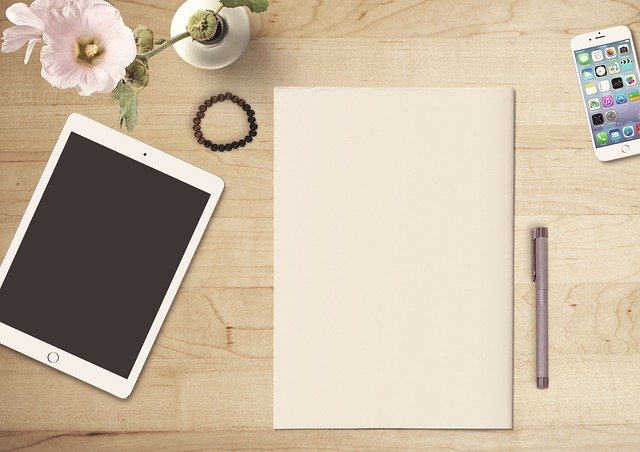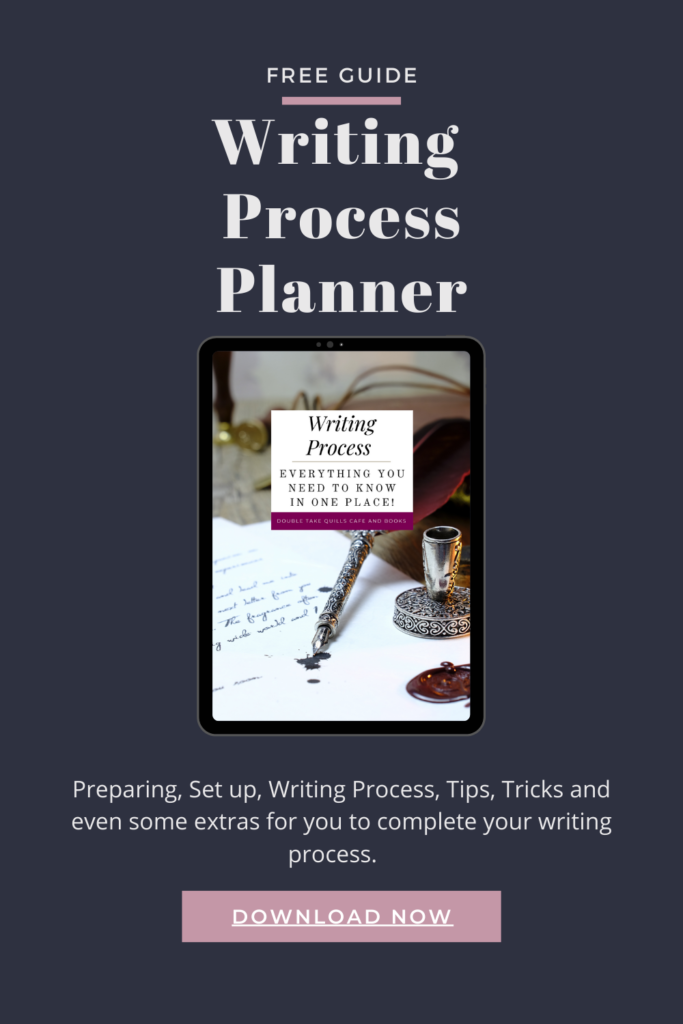
Writing Process
Writing is part of our everyday lives. Whether that writing process is something small like a letter, memo or even texts. They could also be something a bit larger like articles, posts, novels, short stories, and more.
It’s not always an easy task to sit down and write, the distractions, the mental blocks, sometimes the mess. There always seems to be something vying for your attention when you feel you have a moment to yourself to get done the things you want to accomplish. Hopefully we can nail down some of these so your writing goes smoother as you continue your journey.
The Writing process is described as sequence of physical and mental activities that people take as they produce a kind of text. Which is why it is important that you prepare the atmosphere of your space for the activities you want to accomplish. So the first step to your writing process is preparing your atmosphere.
Prepare Your Atmophere

Your atmosphere or creative space is the area in which you complete all of your important tasks, writing, reading, planning, etc. It’s a place where your inspiration and drive are present at all times so you don’t have to worry about distractions, interruption or blocks of any kind.
It’s important for your mind and body to have a space just for these activities and that they are arranged and organized in a way that fits you and your processes. A space where you can provide yourself with the surroundings you need for any mood you’re in.
Below is a link to more on assembling the perfect creative atmosphere for you and your work. Check it out!
Plan Your Creative Spaces
You’re creative space doesn’t have to be in one area. You can have many, the cafe down the street, your backyard picnic area, home office and more. The important thing is to plan your creative spaces so that when a specific mood hits, you’re ready to get down to business without any hassle or disruption.
Planning your spaces takes time, but I promise if you put in the hard work in setting them up, you’ll love the results and you’ll have more than one place to go to get work done, relax and read, and more.
Decide on a Color Scheme
Using color in your space can help you in your endeavors, even if it’s a small thing. The color or colors you choose can subconsciously create the perfect atmosphere or the worst.
Do some research on color and use it to your advantage in your color schemes for decor, office supplies, paints and more.
Gather Supplies
Now that you’ve planned your space and chosen your colors, it’s time to gather your supplies. Whether you already have them or you need to purchase the right ones, gather all your supplies in one place so you have them ready for the next step.
Organize and Decorate
Now comes the fun part. Decorate and organize your spaces the way you want them to benefit you and your lifestyle, work and relaxing.
Only you know how you work and what helps you get things done, be sure to keep that in mind as you work through this process and get your atmospheres ready to use.
Enjoy!
Sit down, relax and take in your new space(s). Your creative atmosphere is ready to use when you are and it will be easy to week when the situation requires an adjustment.
Set Up Your Writing Process
As with anything you do, you should prepare for your writing process. Doing this will help you stay focused, motivated and save you time in the future as you have everything organized and planned. All you have to do is look in the right place to know where you are and where you want to be. It’s great!

Writing Routine
A writing routine will not only keep you on track, but will allow you the flexibility to create as you wish. Keeping track of where you are and where you want to go, while giving you a priority list and keeping track of those shinny new projects that come along the way.
Set Your Writing Goals
Having set goals with deadlines will encourage and motivate you to get your writing done, providing accountability and accomplishment as you complete your work.
Be specific with your goals, making them reachable even if a but tough. Not every goal is going to be easy to obtain, but that doesn’t mean you can’t reach them if they are a little more difficult or harder than you expect. Keep going and work through the obstacles. The next ones you meet will be nothing when you’ve already climbed a small mountain and came down the other side just fine.
Day and Time to Write
Now, this isn’t necessary, per se, but it’s beneficial. Find the days and times of day that you work best and try to schedule your writing around those times/days.
Now, most try to write whenever possible, day or night, lunch breaks, whenever. That is perfectly fine, encouraged even. Though, it’s good to know when you work best so you can do your best work.
Writing Calendar
Another way to keep track of your writing, goals, and other items is to have a writing calendar. Place all your important deadlines, projects, and more in the calendar so you know what’s do when and so on. It’s a great item to have in your writing toolbox.
Writing in Batches
Whether you are writing blog posts, outlines for videos, scenes in your next book, or whatever, a well known tip is to write in batches. Use your time wisely to write similar things in one sitting. Have multiple blog posts due this month, plan them out and when you sit to write one, write them all. It’s a great way to get ahead of schedule and you can just review and edit quickly for scheduling.
This doesn’t just work for writing, you can use this in other areas of your life as well. Shopping, cleaning, recording videos, etc. Find what works best for your and run with it.
Prioritize Your Writing
Make sure you’re not getting distracted with the next big shinny thing that comes along. Create a system where you record that shinny new object, leave it and continue with the project your currently working on. Prioritize what you do first, second, third and so on; while keeping your deadlines in mind.
Keep Files Organized
This is something some need to get under control (wink, wink) as you create multiple files of your writings, you need a place to store them and keep them organized. From cloud based storage to flash drives to hard drives; there are many ways you can save your work. Just be sure you know where they are and what works best for you. You don’t want to be searching all over for your work because you save it in multiple places.
Bullet Journal
Whether you have a bullet journal or any other system like a planner or binder, this is a great place to keep all of your writing items: ideas, goals, routines, deadlines, and more.
Having somewhere to keep everything managed is a great way to stay focused and refer to when you need it.
Inspiration
Everyone needs inspiration now and then, so take some time to create a vision board, Pinterest board, list, or mind map of things that inspire and motivate you.
This is where you can get creative and do as you like, create a mobile, get some dry erase markers and decorate your windows or get some tac board and add inspiring times to them, arranging them in a way that suits you. There is not right or wrong way to gather and display your inspirational items as long as you have a way to refer to them when needed.
Writing Method
Your writing method is how you sit down to write whatever it is you are trying to complete. Do you sit down with a blank screen and just write? Do you use a system like writing sprints, the Porodomo technique (writing for 25 minutes then a 5 minute break)? How about the use of morning page, where you write in a journal about your subject every morning then come back to it later in the day to edit? Or how about the use of writing prompts?
There are many methods for you to use when writing, it’s up to you to find what fits you best and works for your writing project. Try one, if it doesn’t work out, try another until you find what works. You never know, you may find a combination that will work best.
Planning Form
How do you plan your writing? You must decide how you want to plan out your writing. As with most projects, planning your writing is completely up to you and can help you see where you want your writing to go and the end point.
Planning comes with many techniques: writing an outline, notecards and sticky notes, spreadsheets, notes, or just sitting down and writing. You know how you work and finding a way to plan your writing may help you keep with your goals and stay on track with your writing plans.
Writing Software
There are many pieces of software for writing that can help you keep things organized, work with your planning, and keep your writing all in one place while plowing through your workflow.
- Ulysses
- yWriter
- 4thewords.com (OSUBW81786 – one month free)
Process
Now that we have the prep work out of the way, it’s time to get down to the actual writing process of our projects.
Pre-Write
Pre-writing is where you gather your ideas, the topic for your writing, and research any areas that need more thorough discovery. Gathering any information you need to go onto the next step of planning and outlining your writing project.
Some things will take some time and research to get all the information you want down, while others will be relatively easy. Keep these things in mind as you plan, to create an efficient outline of your writing.
Planning and Outline
Planning your writing involves a little more than just your writing topic depending on what your writing is on. Here you decide on your audience, a theme, your characters, the plot, settings, conflict, viewpoints, topic, events, dates, and more. All these things help you plan your novel, essay, or paper allowing you to form an outline of the major points of your writing.
First Draft
Your first draft is just that, the first run through of your project. This isn’t the time dive into editing or revising. You can jot down notes for edits, but keep your first draft all about writing and getting it down on paper (or document). If you stop to edit as you go, you may hinder your progress, but hey, this is your project and it’s up to you how you want to proceed with your process.
Revising and Editing
Once you’ve completed your first draft, now you can start editing and revising your work. Read through your draft and edit anything you jotted down while writing your draft. Fix any plot holes, characters errors, your voice and more.
Tips and Tricks
Tips
- Start Blogging – To get better at writing, you need to write. So, why not start a blog to hone your writing skills and provide information to the world.
- Join a Writing Community – Where would you get better ideas, thoughts and helpful advice than from those who are also on this journey with you.
- Use a Playlist – You may or may not work better with music playing, but if you do, go ahead and create a playlist just for writing. There are plenty of people out there willing to share theirs with you to gain ideas.
Tricks
- Begin in the middle of things. Sometimes its better to start with action than to start at the beginning. Do what works best for you and your writing.
- Engage the imagination of your readers. Allow them to picture your writing in their head as they read.
- Identify the main problem, whether its for a character or an article. Readers want to know what the problem is.
- Make the predicament feel hopeless. Everyone loves to read how someone overcame an obstacle, but they need to feel a low point first.
- Bring it all to climax.
- Leave your readers completely satisfied with your ending.
Continuing Your Writing Process
Continuing with your writing process doesn’t just mean to keep writing, it means keeping yourself going, healthy, and ready to face the next obstacle. It means continuing your education, learning everything you can about your writing and the art of writing. And it means keeping track of your progress.
Self-Care
Writing may be an important aspect of your life, but keeping yourself going is just as important. Self-care while writing will help you stay healthy, energized, and ready to face any challenges with courage and determination. Always remember to take some time for yourself, to recharge, relax and rejuvenate your body and mind.
Education
We are always learning new things, and it’s important to continue learning throughout your writing journey. There are so many things to learn from plotting, planning, organizing, characters, settings, and more. There is always something more to learn, so go out and dive in.
Progress Reports
The last thing we are going to hit on is keeping track of your progress. If you don’t keep track of your work, you won’t know where you came from, where you are going and where you are exactly within your process. Good thing for you, I have just the thing to help you do just that!






